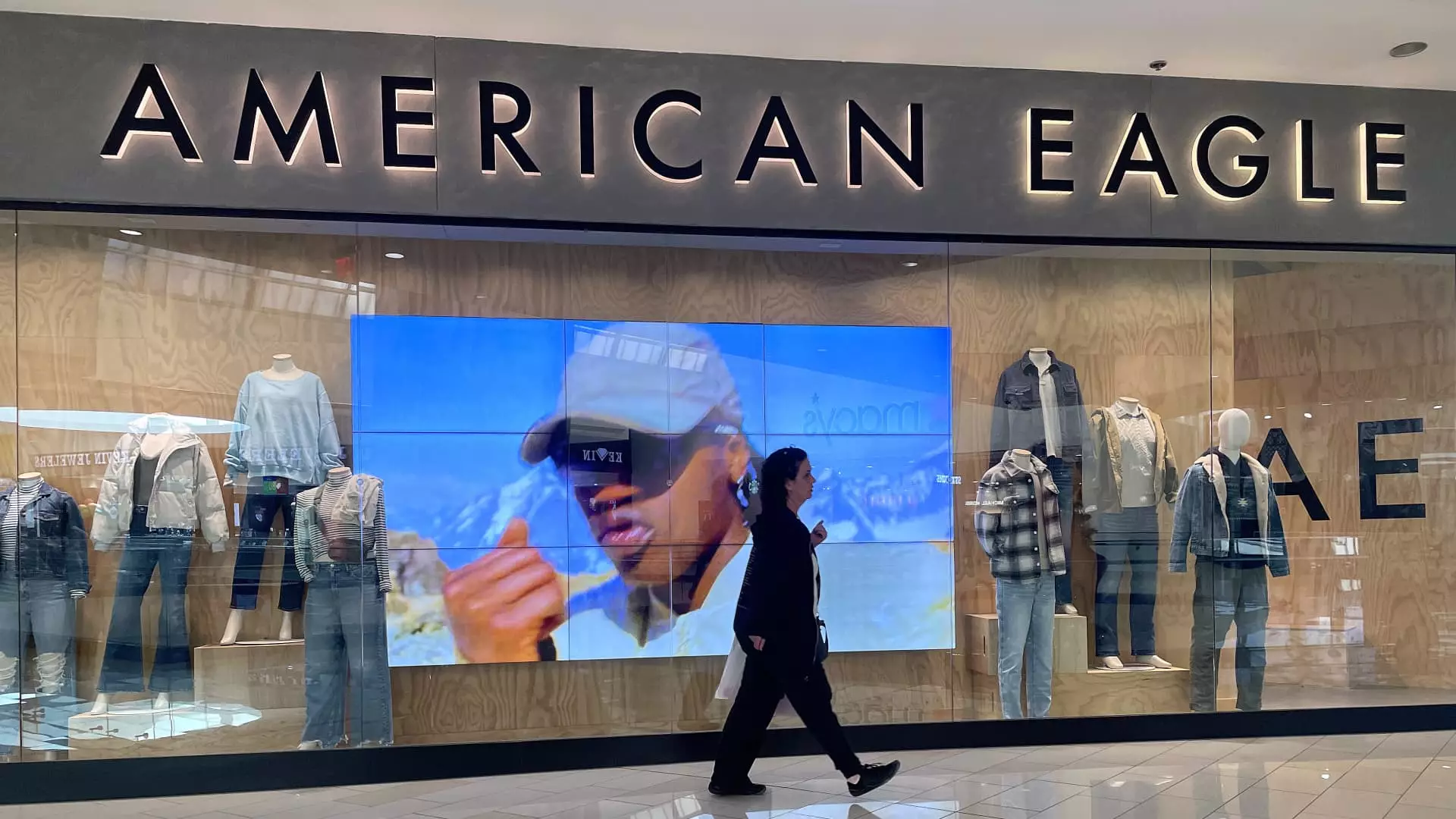In a compelling legal development, American Eagle Outfitters has officially filed a lawsuit against Amazon, alleging that the e-commerce titan has infringed on its trademark. The heart of the matter revolves around the Aerie clothing line, a brand known for its activewear and loungewear. According to court documents, American Eagle asserts that Amazon has engaged in an “unlawful, unauthorized use” of its trademarks, misleadingly using them to attract customers to counterfeit products, which dilutes the integrity of its brand and misleads consumers.
American Eagle’s lawsuit, lodged in the U.S. District Court for the Southern District of New York, raises serious concerns regarding the potential for consumer deception. The crux of American Eagle’s argument is that Amazon’s actions are not merely incidental but part of a deliberate strategy aimed at capitalizing on Aerie’s established brand reputation. This legal action underscores a pivotal issue in Internet commerce—how large platforms can sometimes exploit the branding of smaller or less powerful companies to drive traffic and sales.
The accusations leveled against Amazon are multi-faceted. American Eagle claims that when consumers search for Aerie products, they are often directed towards Amazon listings that do not feature authentic items but rather “inferior quality knock-offs.” These counterfeit products are purportedly branded with variations of the Aerie trademark, leading shoppers to believe they are purchasing authentic items. American Eagle’s complaint highlights specific instances where misspellings of the Aerie brand—such as “Aeries,” “Arie,” and “Aries”—have been utilized not only to evade detection but to sow confusion among consumers.
This aspect of the case raises significant questions about brand protection in the digital age. As consumers increasingly turn to online platforms for their shopping needs, the risk of encountering counterfeit products becomes a pressing issue. By misusing trademarks, e-commerce platforms can unwittingly (or perhaps wittingly) provide cover for counterfeiters, thereby undermining the considerable investment that brands like American Eagle have made in developing their identities.
This lawsuit is not an isolated incident but part of a broader narrative concerning Amazon’s relationship with third-party sellers and counterfeit products. Over the years, Amazon has faced numerous criticisms from various brands across different industries, accusing it of failing to protect its trademarks and of allowing counterfeit goods to flourish on its marketplace. High-profile cases, such as those involving Birkenstock and Daimler AG, illustrate a pattern of brands withdrawing from Amazon due to rampant counterfeiting and insufficient measures to safeguard their products.
In light of these historical grievances, American Eagle’s lawsuit can be seen as an extension of a growing concern among brands about the integrity of their identities in the online marketplace. This not only emphasizes the ethical dimensions of e-commerce but also highlights the increasingly complex relationship between legitimate businesses and platform providers.
While Amazon has yet to comment on this particular lawsuit, the company has previously asserted its commitment to combating counterfeit products on its platform. Over the years, Amazon has implemented various strategies to address the concerns of brands, including pursuing legal action against counterfeiters and enhancing its resources for trademark protection. However, the effectiveness of these measures remains under scrutiny, as numerous brands continue to report challenges in protecting their intellectual property.
The implications of this litigation could be far-reaching. If American Eagle succeeds in its claim, it may prompt other brands to take similar actions, further pressuring Amazon to bolster its efforts against counterfeiting. Alternatively, a loss for American Eagle could embolden third-party sellers operating within the marketplace, as they may interpret it as a lack of accountability from the e-commerce giant.
As this case unfolds, it poses critical questions about trademark infringement, brand integrity, and the responsibilities of e-commerce platforms. For American Eagle, the lawsuit represents not only a fight for its own brand identity but also a broader battle for all companies seeking to protect their trademarks in an increasingly complex and competitive online marketplace. The outcome could shape future e-commerce practices and set a precedent for how brands and platforms navigate the challenges posed by counterfeit goods. With the stakes so high, the watchful eyes of various stakeholders—businesses, consumers, and legal experts—will be keenly focused on the proceedings and their implications for the future of online retail.


Leave a Reply